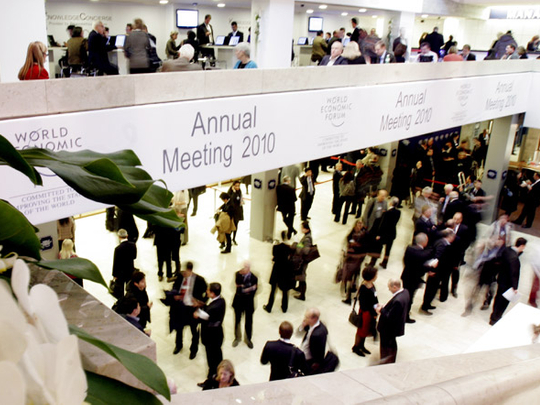
Bill Clinton has put his massive star appeal and eloquence into mobilising aid for Haiti. He has been touring Davos making special appeals for support, and happily has been getting a lot of willing ears who have moved to action.
During one such appeal, Clinton spoke of the importance of symbols in defining how reconstruction can give a wider message. He described how while he toured Port-au-Prince last week with the president of Haiti to see the extreme destruction all over the country, they passed the wrecks of the old and beautiful landmark buildings which had housed the Ministry of Finance and the Presidential residence.
The president turned to Clinton and said: "We will not rebuild these buildings as they were. We need new buildings. They can still be beautiful but they must be smaller and more energy efficient. They should be symbols of the country we want to become. We need to look ahead, and not look back."
We eat 4,000 litres of water a day
The casual manner in which we all take water for granted was rammed home by Nestle Chairman Peter Brabeck-Letmathe when he pointed out that we all consume huge quantities of water that we do not really recognise.
"We all drink five litres a day on average, but we eat between 4,000 and 6,000 litres of water a day." Brabeck was making the point that all food we eat has used a substantial supply of water before it gets to our tables.
The vegetables have used water to grow, and any animal we eat has had to grow, drinking water and also eating vegetation as it matures.
At a time of increasing water stress all over the world, we all have to think about the water content of what we use in our daily lives.
In the developed world, many of these issues are just a matter of changing lifestyles, but in parts of the developing world where infrastructure is poor, and poverty is a dominant way of life, good water management is a matter of life and death.
The week in Davos is nothing if not varied, which is one of the Forum's great benefits as it drags surprised delegates from very different disciplines to talk to each other. But one session in particular stood out as being very much on its own, with no immediate link to any other issue.
Jill Tarter, head of the SETI Institute, spoke of her Search for Extra-Terrestrial Intelligence, which has been going on for 40 years.
She pointed out that Earth is one of 100 million planets that have the potential to support life, making it likely that something is out there somewhere.
Dimitar Sasselov of Harvard University spoke of how we will need to redefine life as we search the stars so that we recognise what we find.
He distinguished between various different levels of ability, with the most basic being the ability to replicate.
A more advanced lifeform is be able to communicate, and further advancement leads to being able to form societies.
The most advanced forms of societies are able to achieve longevity. Perhaps this is the question for the rest of us, as we look at global warming, which is challenging our ability as a species to achieve sustainability.












